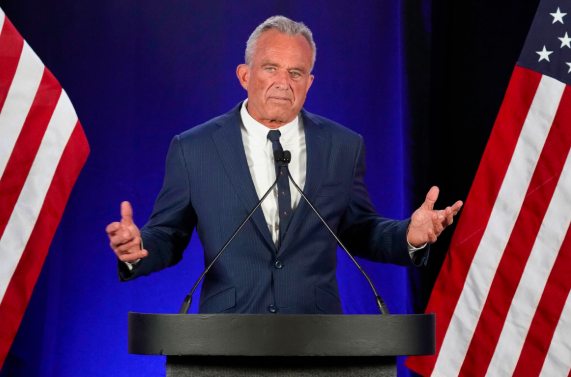Introduction
Kennedy Funding Lawsuit, Inc. is one of the leading private lending firms in the United States, specializing in commercial real estate loans. Over the years, the company has been involved in numerous legal disputes, which have shaped the landscape of private lending. These cases often highlight the complexities of borrower-lender relationships, particularly in situations involving defaults, foreclosure, and loan repayment issues.
In this article, we will take an in-depth look at some of the key lawsuits involving Kennedy Funding. We will explore the facts, legal arguments, and outcomes of these cases, as well as the broader implications for private lending and real estate financing.
What is Kennedy Funding, Inc.?
Before delving into the lawsuits, it’s essential to understand who Kennedy Funding is and what role they play in the real estate financing industry.
Kennedy Funding is a private lending institution based in the U.S., primarily involved in providing large-scale loans for commercial real estate projects. The company is known for offering quick, flexible financing solutions for developers, investors, and other borrowers who may not be able to secure traditional bank loans due to the unique nature of their projects or their financial standing. Kennedy Funding typically deals with high-value, complex properties and often works with borrowers on a short-term basis.
While private lending can be highly beneficial, it also carries a higher level of risk due to the lack of regulation compared to traditional banking. This increased risk sometimes leads to legal disputes, which we will explore below.
Why Do Lawsuits Arise in Private Lending?
Understanding the Legal Complexities of Private Lending
Private lending, unlike traditional banking, involves fewer regulations and often deals with high-risk transactions. The unique nature of these deals makes them prone to misunderstandings, defaults, and legal conflicts. For instance, borrowers might struggle to meet repayment deadlines, or there may be disagreements over the terms of the loan agreement.
This section explores why lawsuits, like those involving Kennedy Funding, are common in private lending. These legal conflicts can arise from:
- Loan Defaults: Borrowers who fail to meet their obligations can face legal actions.
- Ambiguity in Loan Terms: Vague or unclear terms in loan agreements can lead to disputes.
- Misunderstanding of Mortgage Terms: Borrowers sometimes misunderstand the implications of mortgage agreements and face foreclosure.
- Breach of Contract: If a borrower or lender does not fulfill their contractual obligations, litigation often follows.
Kennedy Funding, Inc. v. Lion’s Gate Development, LLC
Background of the Dispute
One of the prominent lawsuits involving Kennedy Funding was with Lion’s Gate Development, LLC. This case revolves around a loan agreement in which Kennedy Funding sued Lion’s Gate for defaulting on the terms of the loan. The primary issue in this case was whether the loan agreement was enforceable or not.
Lion’s Gate Development argued that the loan agreement was invalid, claiming that it lacked proper consideration and was unconscionable. Essentially, they contended that the loan terms were too one-sided and that they were not adequately informed when agreeing to the contract.
The Legal Argument
Kennedy Funding filed for a breach of contract, claiming that Lion’s Gate Development had violated the terms of the loan. The case focused on whether the loan agreement was legally binding and enforceable. A major point of contention was the clarity of the terms of the loan and the parties’ understanding of the contract.
Outcome and Implications
After a thorough review of the contract terms, the court ruled in favor of Kennedy Funding. The court emphasized that the loan commitment was valid, and the borrower was held accountable for repayment. This case served as an important reminder about the necessity of clear, unequivocal terms in lending contracts.
Kennedy Funding, Inc. v. Greenwich Landing, LLC
Background of the Dispute
In another major lawsuit, Kennedy Funding initiated a strict foreclosure action against Greenwich Landing, LLC, and Mahmoud Wahba. The dispute arose from a commercial mortgage that Kennedy Funding had provided to Greenwich Landing. The borrower defaulted on the mortgage, leading Kennedy Funding to seek foreclosure to recover its investment.
Legal Issue
The central legal issue in this case was whether the mortgage agreement was properly executed and whether the lender was entitled to foreclosure under the circumstances. Kennedy Funding argued that Greenwich Landing had failed to meet its obligations under the contract, and the court should rule in favor of strict foreclosure.
Court’s Ruling
The court ultimately agreed with Kennedy Funding, affirming the decision for strict foreclosure. The judgment demonstrated the power of private lenders to enforce loan agreements and the importance of adhering to mortgage obligations. This case also illustrated the legal process of strict foreclosure, which allows lenders to reclaim the property without the need for a public sale.
Kennedy Funding, Inc. v. Ruggers Acquisition and Development, LLC
Background of the Dispute
Kennedy Funding was also involved in a lawsuit with Ruggers Acquisition and Development, LLC. The case stemmed from a default on a commercial loan. Kennedy Funding sought to recover the amount owed by filing a breach of contract claim against Ruggers Acquisition.
Legal Argument
The dispute centered on whether the breach of contract claim was valid and whether Kennedy Funding was entitled to damages. The borrower, Ruggers Acquisition, contested the terms of the loan agreement, arguing that the provisions were overly restrictive and unclear.
Outcome and Legal Precedents
The court ruled in favor of Kennedy Funding, emphasizing the need for parties to comply with the terms of legally binding agreements. This case reinforced the principle that borrowers must fulfill their obligations, particularly in commercial real estate transactions, or face the consequences, including foreclosure and legal action.
Legal Terms You Should Know in a Lawsuit Involving Private Lending
In lawsuits like those involving Kennedy Funding, understanding certain legal terms is crucial. Here are some common terms you may encounter:
| Legal Term | Definition |
| Breach of Contract | A failure to fulfill the terms of an agreement. |
| Foreclosure | The legal process by which a lender can reclaim property. |
| Strict Foreclosure | A process allowing a lender to seize property without auction. |
| Mortgage | A loan agreement that is secured by property. |
| Loan Default | Failure to make required loan payments. |
| Breach of Fiduciary Duty | Failure to act in the best interest of another party. |
These terms often play a central role in private lending disputes and understanding them can be vital when navigating similar situations.
Impact of Kennedy Funding Lawsuits on the Private Lending Industry
The lawsuits involving Kennedy Funding highlight several key issues that affect private lenders and borrowers alike. Some of the most significant implications include:
1. Importance of Clear Loan Agreements
Many of the legal disputes surrounding Kennedy Funding centered on ambiguous terms or misunderstandings between the lender and borrower. These cases serve as a reminder of the importance of having clear, detailed loan agreements that outline all responsibilities and expectations.
2. Risk of Defaults in Private Lending
While private lending can offer quick and flexible financing options, it also comes with a higher risk of default. As evidenced by the cases involving Kennedy Funding, borrowers who default on loans can face serious legal consequences, including foreclosure and lawsuits.
3. Enforceability of Loan Terms
Private lenders, such as Kennedy Funding, often engage in complex, high-value transactions. These cases demonstrate the importance of ensuring that loan terms are legally enforceable, especially when disputes arise. Lenders need to ensure their contracts are airtight and that all parties fully understand their obligations.
4. The Role of Foreclosure in Loan Recovery
When a borrower defaults on a loan, private lenders like Kennedy Funding often have to pursue legal avenues such as foreclosure to recover their investments. This process can be lengthy and expensive but is an essential tool for protecting the interests of lenders.
Lessons for Borrowers and Lenders
For Borrowers
- Understand the Terms of Your Loan: It is essential to fully understand the loan terms, including interest rates, repayment schedules, and penalties for default.
- Seek Legal Advice: Before entering into any loan agreement, borrowers should seek legal counsel to ensure they are not signing unfavorable contracts.
- Stay in Communication with Your Lender: If you are struggling with repayment, it’s crucial to communicate openly with your lender. This can sometimes result in renegotiated terms or alternative solutions.
For Lenders
- Draft Clear Contracts: Lenders must ensure that their contracts are clear, fair, and enforceable. This can help avoid legal disputes in the future.
- Know the Legal Recourses Available: Lenders should understand the legal steps they can take if a borrower defaults, including foreclosure and other recovery methods.
- Be Prepared for Long-Term Legal Battles: Legal disputes in private lending can be time-consuming and costly. Lenders should be prepared for potential lawsuits and legal proceedings.
Kennedy Funding’s Strategy in Handling Lawsuits
Over the years, Kennedy Funding has developed a reputation for aggressively pursuing legal action to recover outstanding loans. The company’s strategy in handling lawsuits generally involves pursuing strict foreclosure actions, as seen in several of its high-profile cases.
Kennedy Funding’s aggressive legal stance has made it a formidable player in the private lending market. The company has been successful in many of its lawsuits, often prevailing in cases of loan default and breach of contract. However, their approach also underscores the importance of being fully prepared for the legal complexities of private lending.
How Borrowers Can Avoid Lawsuits in Private Lending
1. Perform Thorough Due Diligence
Before accepting a loan from a private lender like Kennedy Funding, borrowers should conduct thorough research on the terms of the loan and the lender’s history. By ensuring they fully understand the loan terms and the lender’s reputation, borrowers can avoid misunderstandings that could lead to litigation.
2. Negotiate Loan Terms
It’s often possible to negotiate the terms of a loan, especially in private lending. Borrowers should seek to revise any terms that seem overly burdensome or unclear. This proactive approach can prevent legal disputes down the line.
3. Keep Open Communication
Clear communication with the lender is essential. If issues arise with repayment, borrowers should inform the lender immediately and work together to find a resolution. Many lenders, including Kennedy Funding, may be open to renegotiating loan terms or providing alternative solutions if the borrower is transparent about their situation.
Conclusion
Kennedy Funding Lawsuit has been involved in a number of significant lawsuits that highlight the complexities of private lending. These legal disputes emphasize the importance of clear contracts, effective communication, and the risks inherent in borrowing and lending large sums of money in the commercial real estate sector.
Both borrowers and lenders can learn valuable lessons from the cases involving Kennedy Funding. By understanding the terms of their agreements and staying informed of their legal rights and responsibilities, they can avoid costly and time-consuming legal battles in the future.
FAQs About Kennedy Funding Lawsuit
What is the Kennedy Funding lawsuit about?
Kennedy Funding Lawsuit involves legal disputes over loan defaults, breach of contract, and foreclosure actions related to Kennedy Funding’s lending agreements.
How does Kennedy Funding handle loan defaults?
Kennedy Funding typically files lawsuits, including foreclosure or strict foreclosure, to recover outstanding loan amounts.
What is strict foreclosure in private lending?
Strict foreclosure allows a lender to take property possession without an auction when a borrower defaults on a loan.
Can private lenders like Kennedy Funding sue borrowers for loan defaults?
Yes, private lenders can sue borrowers for defaulting on loans, often leading to foreclosure to recover funds.
What are the risks of taking a loan from private lenders?
Risks include higher interest rates, less regulation, and the potential for foreclosure if loan terms are not met.
How can borrowers avoid lawsuits with private lenders?
Borrowers should understand loan terms, communicate with lenders, and seek legal advice to prevent legal disputes.






